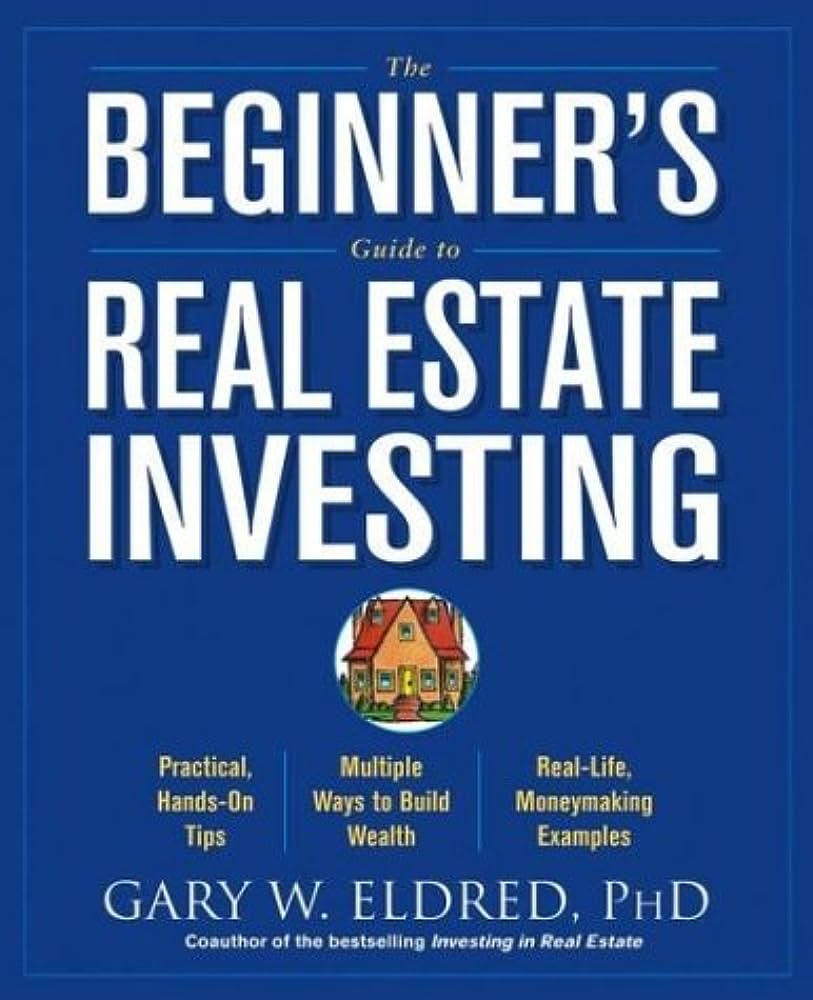Ladies and gentlemen, allow me to present to you “A Beginner’s Guide to Investing in Real Estate.” In this comprehensive article, we will embark on an exciting journey into the world of real estate investment, equipping you with the knowledge and tools to navigate this lucrative market with confidence and ease.
Whether you’re a novice looking to dip your toe into the waters of real estate, or an experienced investor seeking to expand your portfolio, this guide has something for everyone. From understanding the fundamental principles of real estate investment to exploring the various strategies and opportunities available, we will walk you through each step of this exhilarating venture. Get ready to unlock the secrets of successful real estate investment and pave your way towards financial independence.
So, without further ado, let’s dive into the exhilarating realm of investing in real estate. From debunking common myths to providing essential tips on property selection and financing options, this guide will empower you to make informed decisions and reap the rewards of this thriving market. Get ready to embark on a path towards financial freedom as we demystify the world of real estate investment, arming you with the tools and insights necessary to thrive in this fruitful domain. Let’s begin this exciting journey together!
A Beginner’s Guide to Investing in Real Estate
Investing in real estate can be a rewarding venture, providing you with the opportunity to build wealth and secure your financial future. Whether you’re looking to generate passive income through rental properties or earn a profit through property appreciation, real estate offers numerous avenues for success. However, before diving into the world of real estate investing, it’s important to educate yourself and understand the key steps involved. In this comprehensive guide, we will walk you through the essential components to help you get started on your journey towards real estate investment success.

This image is property of Amazon.com.
1. Set Financial Goals
Define your investment objectives
Before you embark on your real estate investment journey, take some time to define your investment objectives. What are you trying to achieve through real estate investing? Are you looking for long-term appreciation, passive income, or a combination of both? By clearly defining your objectives, you can align your investment strategy accordingly and make informed decisions along the way.
Determine your budget
Next, take a close look at your finances and determine how much you are willing and able to invest in real estate. Consider factors such as your current income, expenses, and any existing financial obligations. Setting a realistic budget will help you narrow down your options and ensure that you don’t overextend yourself financially.
Identify your risk tolerance
Real estate investing comes with its own set of risks, and it’s important to understand your own risk tolerance before making any investment decisions. Assess your ability to withstand market fluctuations, potential vacancies, and unexpected expenses. This will help you choose investment properties and strategies that align with your risk tolerance, ensuring a more comfortable investment experience.
2. Understand Real Estate Types
To make informed investment decisions, it’s essential to have a solid understanding of the different types of real estate. Here are the main categories you should familiarize yourself with:
Residential properties
This refers to properties intended for personal use or rental purposes, such as single-family homes, townhouses, condominiums, or apartment buildings. Residential properties are often a popular choice for beginner investors due to their relatively lower costs and potential for steady rental income.
Commercial properties
Commercial properties include office buildings, retail spaces, warehouses, hotels, and more. Investing in commercial real estate can offer higher potential returns but also comes with increased risks and complexities. It often requires thorough market research and a strong understanding of the local business environment.
Industrial properties
Industrial real estate includes properties like manufacturing facilities, distribution centers, and storage units. Investing in industrial properties can provide stable cash flow and long-term appreciation potential. However, due diligence is crucial, as these properties typically require specific knowledge of zoning regulations and logistical considerations.
Vacant land
Investing in vacant land involves acquiring undeveloped parcels with the expectation of future development or appreciation. This type of investment requires careful assessment of the location, market demand, and potential for zoning changes or development opportunities.

This image is property of Amazon.com.
3. Research the Market
Once you understand the different types of real estate, it’s important to conduct thorough market research to identify favorable investment opportunities. Here are the key steps to help you in this process:
Analyze market trends
Stay updated on the latest market trends by monitoring real estate data, economic indicators, and local market reports. Look for areas experiencing population growth, job opportunities, and infrastructure development. Understanding market trends will help you identify locations with high investment potential.
Evaluate property locations
Location is a critical factor that can greatly impact the success of your real estate investment. Consider factors like proximity to amenities, schools, transportation, and job centers. Research neighborhood demographics, crime rates, and vacancy rates to assess the desirability and demand in the area.
Study local regulations and laws
Each jurisdiction has its own set of regulations and laws governing real estate investments. Familiarize yourself with zoning laws, building codes, rental regulations, and tax policies in the areas you are interested in investing. This knowledge will help you avoid legal issues and make well-informed decisions.
4. Build a Real Estate Team
Investing in real estate often requires a team of professionals to guide you through the process. Here are some key players you should consider having on your team:
Find a reliable real estate agent
A knowledgeable and experienced real estate agent can be an invaluable asset. They can help you navigate the market, identify suitable properties, negotiate deals, and provide guidance throughout the entire investment process. Look for an agent with local market expertise and a solid track record in real estate investing.
Hire an attorney
Having a real estate attorney on your team can provide legal protection and ensure that all transactions and contracts are executed correctly. An attorney can review purchase contracts, conduct due diligence, advise on legal matters, and help you comply with local regulations.
Consult with a mortgage broker
If you require financing for your real estate investment, a mortgage broker can help you explore different loan options and find the best possible terms. They will guide you through the loan application process, help you compare mortgage rates, and ensure you secure the most suitable financing for your investment goals.
Consider partnering with a property manager
If you’re planning to invest in rental properties, partnering with a property manager can relieve you of the day-to-day responsibilities of managing tenants, maintenance, and rent collection. A property manager can help maximize your rental income, handle tenant screening, and oversee property repairs and maintenance.

This image is property of Amazon.com.
5. Financing Options
Before making an offer on a property, it’s important to explore different financing options available to you. Here are some common financing avenues to consider:
Explore traditional mortgages
A traditional mortgage is a common financing option for individuals looking to purchase residential properties. It involves obtaining a loan from a bank or financial institution, secured by the property being purchased. Traditional mortgages generally require a down payment and an established credit history.
Look into private financing
Private financing involves borrowing money from individuals or private investment firms instead of traditional financial institutions. Private financing can be a viable option for investors with less-than-perfect credit or unconventional investment opportunities. However, it’s important to carefully review the terms and ensure that the interest rates and fees are reasonable.
Consider using a real estate investment group
A real estate investment group pools together funds from multiple investors to purchase properties collectively. This option allows you to invest in real estate without the need for a substantial upfront investment or the responsibility of managing the property yourself. However, it’s important to carefully research the investment group and ensure they have a reputable track record.
Research seller financing options
In some cases, sellers may be willing to finance the purchase themselves by offering seller financing. This means they act as the lender and allow the buyer to make scheduled payments directly to them, typically with an agreed-upon interest rate. Seller financing can be a creative solution, especially if you’re having difficulty securing traditional financing.
6. Conduct Due Diligence
Before finalizing any real estate transaction, it’s crucial to thoroughly evaluate the property and its associated risks. Here are some important due diligence steps:
Inspect and appraise the property
Hire a professional inspector to assess the property’s condition and identify any potential issues. Additionally, obtain a professional appraisal to determine the fair market value of the property. These steps will help you confirm that the property is worth the investment and identify any necessary repairs or maintenance.
Review property title and ownership documents
It’s essential to conduct a title search to ensure the property has a clear title and is free of any liens or encumbrances. This will protect you from potential legal complications and ensure that you have full ownership rights to the property.
Evaluate property taxes and insurance expenses
Research the property tax rates in the area and factor them into your financial projections. Additionally, obtain insurance quotes to determine the cost of insuring the property against potential risks. These expenses will impact your cash flow and should be considered when analyzing the investment potential of a property.

This image is property of www.clevergirlfinance.com.
7. Analyze the Return on Investment
Before making a purchase, it’s crucial to evaluate the potential return on investment (ROI) of a property. Here are some key considerations:
Calculate potential rental income
If you’re investing in rental properties, estimate the potential rental income based on market rates and demand. Consider factors such as vacancy rates, maintenance costs, and property management fees. This will help you determine the cash flow generated by the property.
Assess operating expenses
Factor in all operating expenses associated with owning and maintaining the property, including property taxes, insurance, maintenance, repairs, and utilities. Subtracting these expenses from the potential rental income will give you a clearer picture of the property’s profitability.
Determine cash flow and ROI
Calculate the net cash flow by subtracting operating expenses and mortgage payments from the rental income. Divide this cash flow by your initial investment to determine the ROI percentage. This analysis will help you assess the profitability and potential return on your investment.
8. Evaluate Potential Risks
Investing in real estate comes with inherent risks, and it’s important to assess and mitigate potential pitfalls. Here are some key factors to consider:
Assess market volatility
Real estate markets can experience fluctuations and downturns. Research historical market trends and economic indicators to assess the stability and potential volatility of the market you are considering. Understanding market dynamics will help you make more informed investment decisions.
Consider economic factors
The overall state of the economy can greatly impact the success of your real estate investment. Factors such as job growth, inflation rates, and interest rates can influence property values and rental demand. Stay informed about economic forecasts and consider their potential impact on your investment.
Evaluate property-specific risks
Each property comes with its own set of risks that you should carefully assess. Consider factors such as location, property condition, potential for natural disasters, and environmental concerns. Conduct thorough inspections and due diligence to minimize potential risks associated with a particular property.

This image is property of i.ytimg.com.
9. Create a Real Estate Investment Strategy
To maximize your investment success, it’s important to have a clear investment strategy in place. Here are some key steps to develop your strategy:
Identify investment objectives
Review your investment objectives from earlier and ensure they align with your overall financial goals. Determine whether you are seeking long-term appreciation, cash flow through rentals, or a combination.
Choose an investment strategy
Consider different investment strategies, such as fix and flip, buy and hold, or value investing. Each strategy has its own unique advantages and challenges. Research different strategies and choose the one that best fits your objectives, risk tolerance, and available resources.
Develop an exit strategy
Before entering any investment, it’s important to have an exit strategy in place. Consider whether you plan to sell the property after a certain period, refinance, or hold it indefinitely. Having a clear exit strategy will help guide your decisions throughout the investment lifecycle.
10. Make an Offer and Negotiate
Once you’ve identified a suitable property, it’s time to make an offer and negotiate favorable terms. Here are some key steps in the process:
Submit a purchase offer
Work with your real estate agent to draft and submit a purchase offer to the seller. Consider factors such as property condition, market value, and comparable sales when determining the offer price. Include any contingencies that protect your interests, such as financing or inspection contingencies.
Negotiate terms and price
Negotiation is a crucial aspect of real estate transactions. Work with your agent to negotiate the terms and price that align with your investment objectives. Be prepared to compromise and consider the seller’s perspective as well.
Include contingencies
Include contingencies in your purchase offer to protect yourself from unforeseen circumstances. Common contingencies include financing, appraisal, and inspection contingencies. These contingencies provide you with the opportunity to back out of the deal if certain conditions are not met.
11. Closing the Deal
Congratulations! You’ve successfully negotiated a deal, and now it’s time to close the transaction. Here’s what you need to do:
Arrange financing
Finalize your financing arrangements and provide all necessary documentation to the lender. Coordinate with your mortgage broker and review the loan terms and conditions. Ensure that you have satisfied all the requirements for securing the financing.
Review and sign legal documents
Review all legal documents, including the purchase agreement, title documents, and loan documents. It’s advisable to have an attorney review these documents to ensure they protect your interests. Sign the necessary paperwork and complete any required payments.
Complete property transfer
Coordinate with your attorney, real estate agent, and the seller to complete the property transfer process. Pay any closing costs, taxes, and fees as required. Once all the paperwork is completed, the property ownership will be officially transferred to you, and you can finally celebrate your new real estate investment.
In conclusion, investing in real estate can be a lucrative endeavor, but it requires careful planning, research, and due diligence. By following the steps outlined in this guide, you’ll be well-equipped to navigate the world of real estate investing with confidence. Remember to set clear investment goals, understand the different types of real estate, build a reliable team, explore financing options, analyze potential risks, and develop an investment strategy. With perseverance and a well-informed approach, you can unlock the potential of real estate investing and achieve your financial goals.












